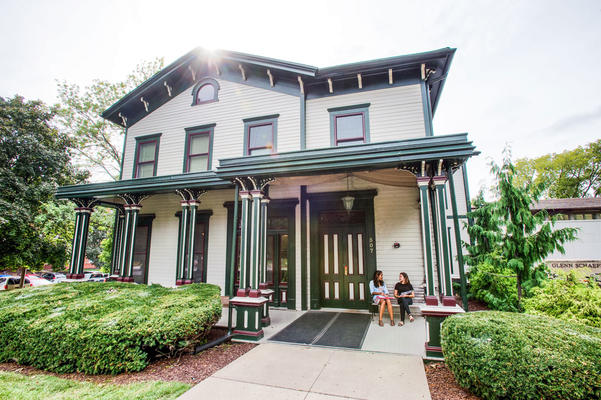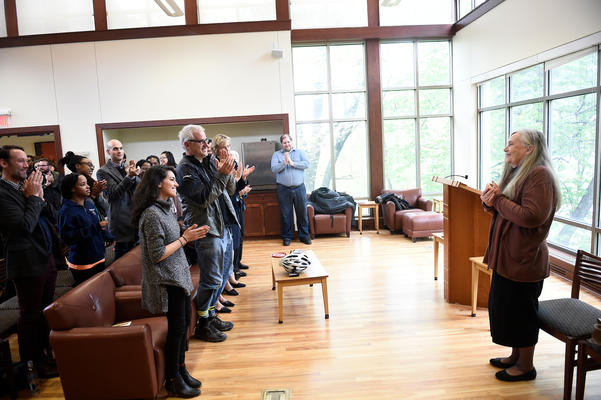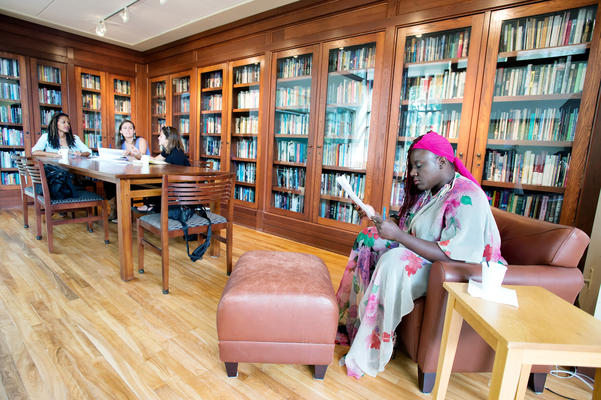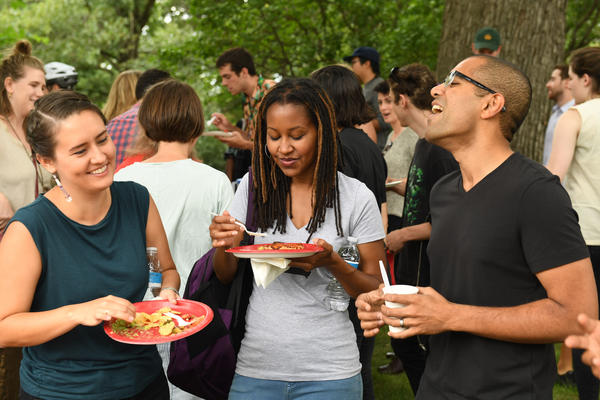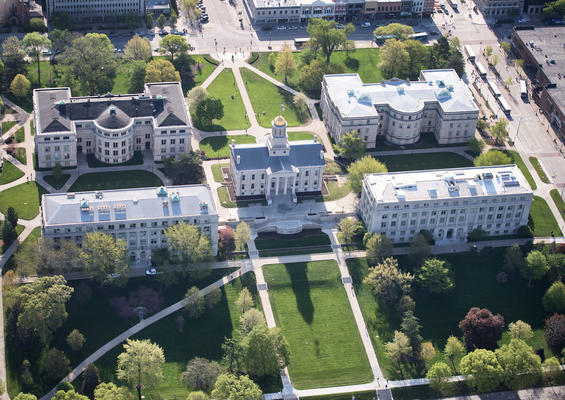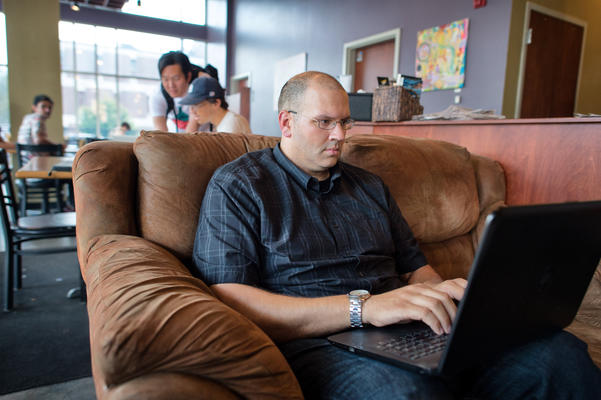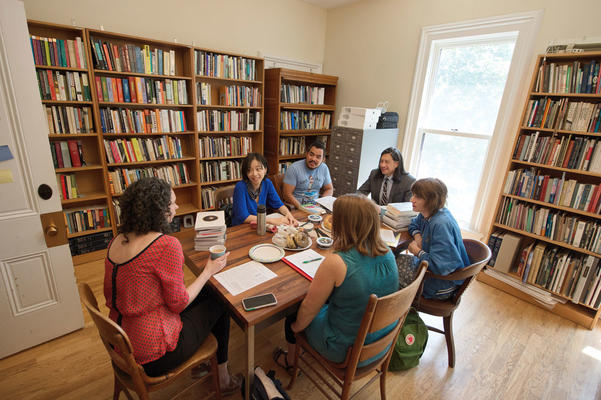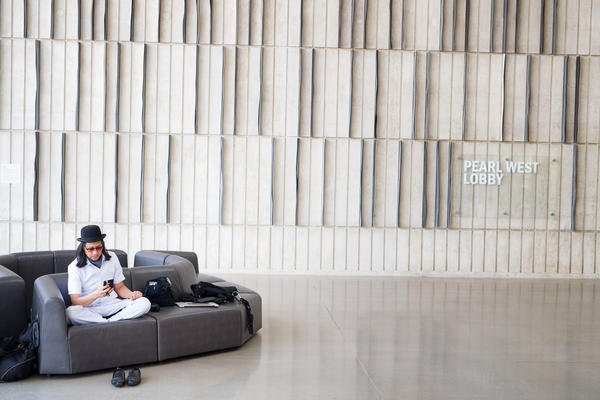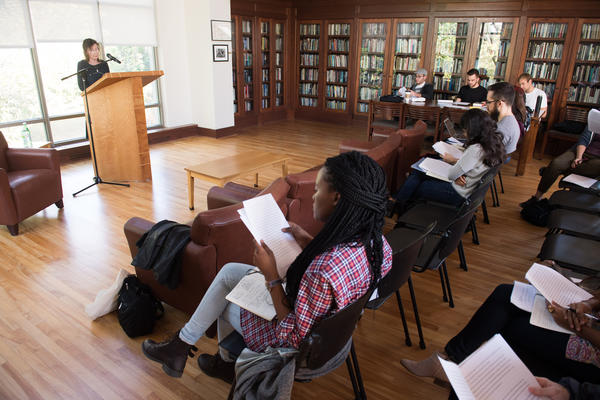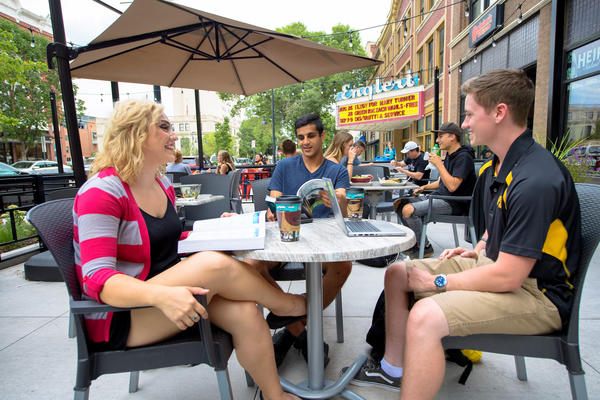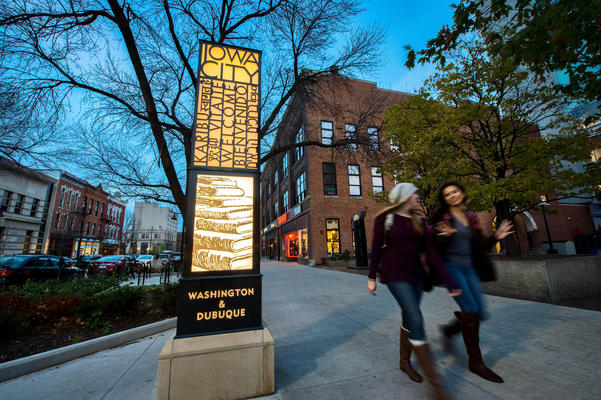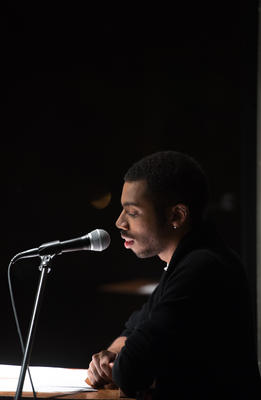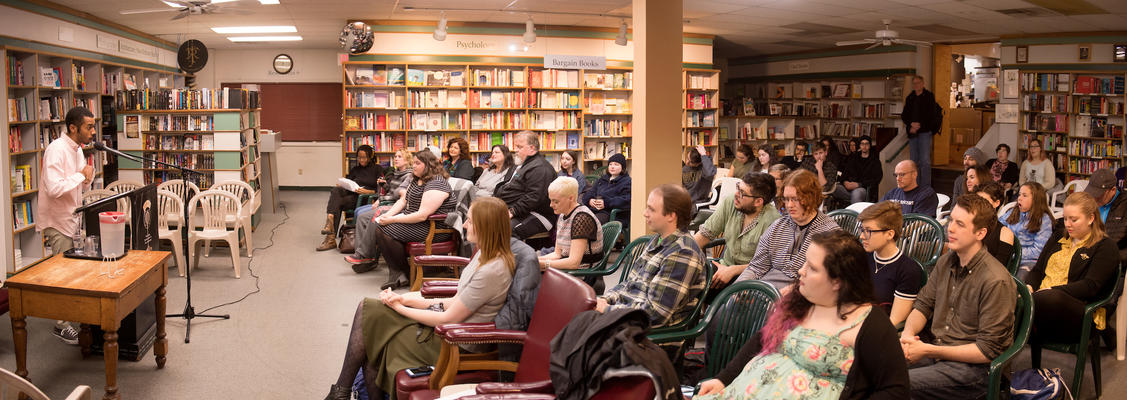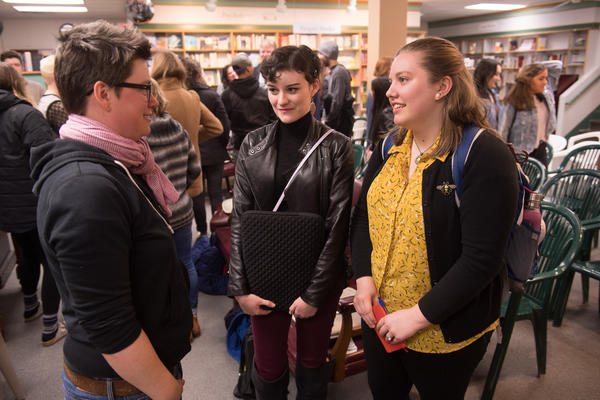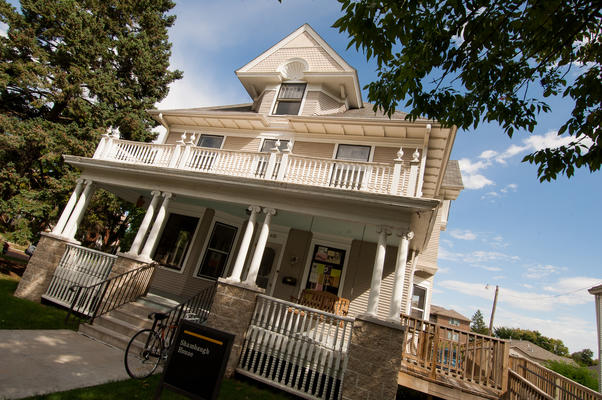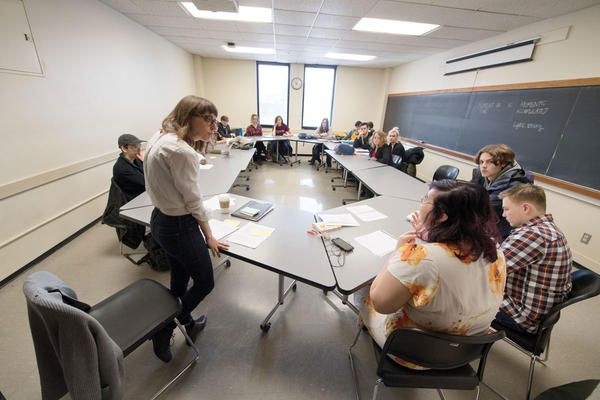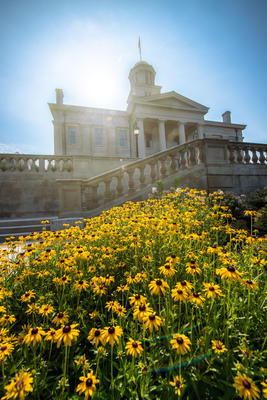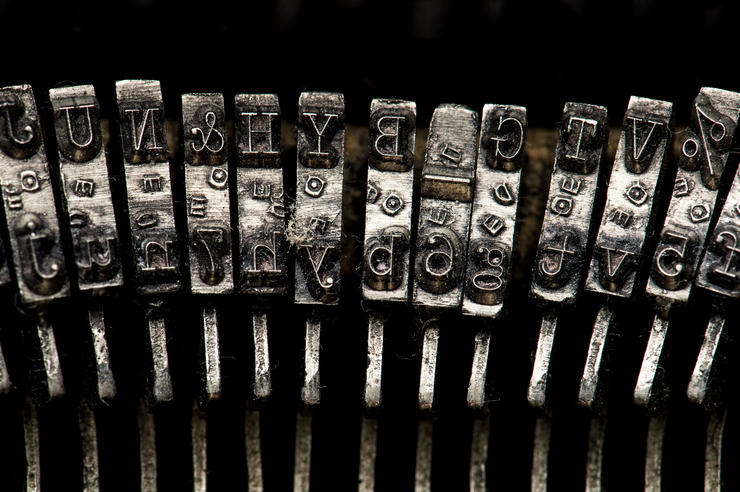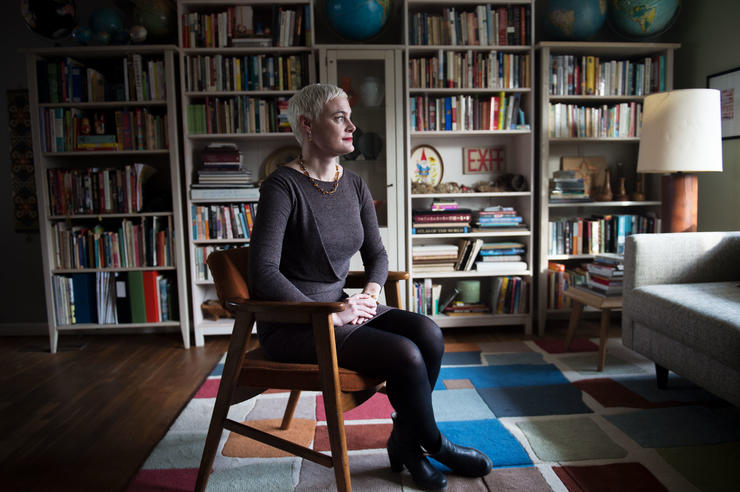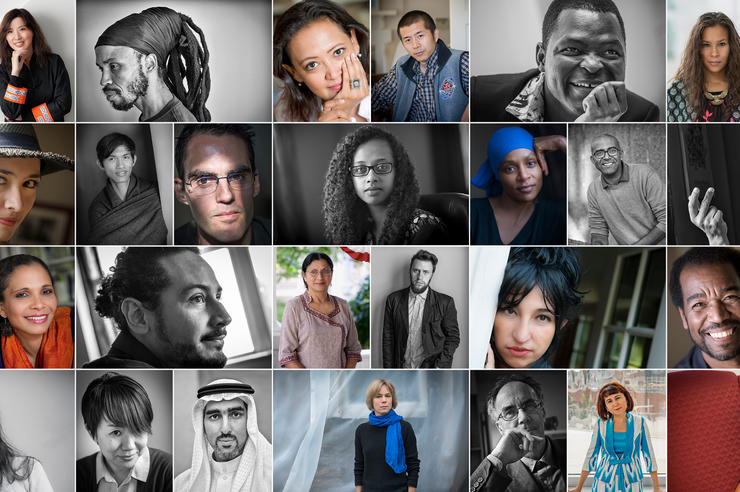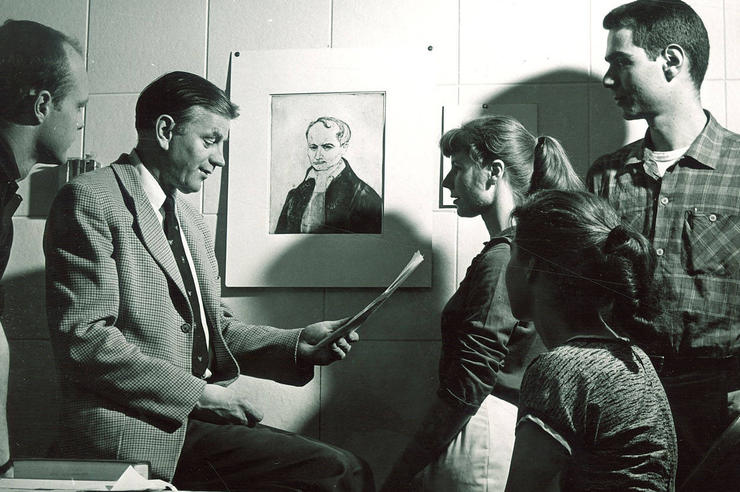Iowa City: Little town, big on writing
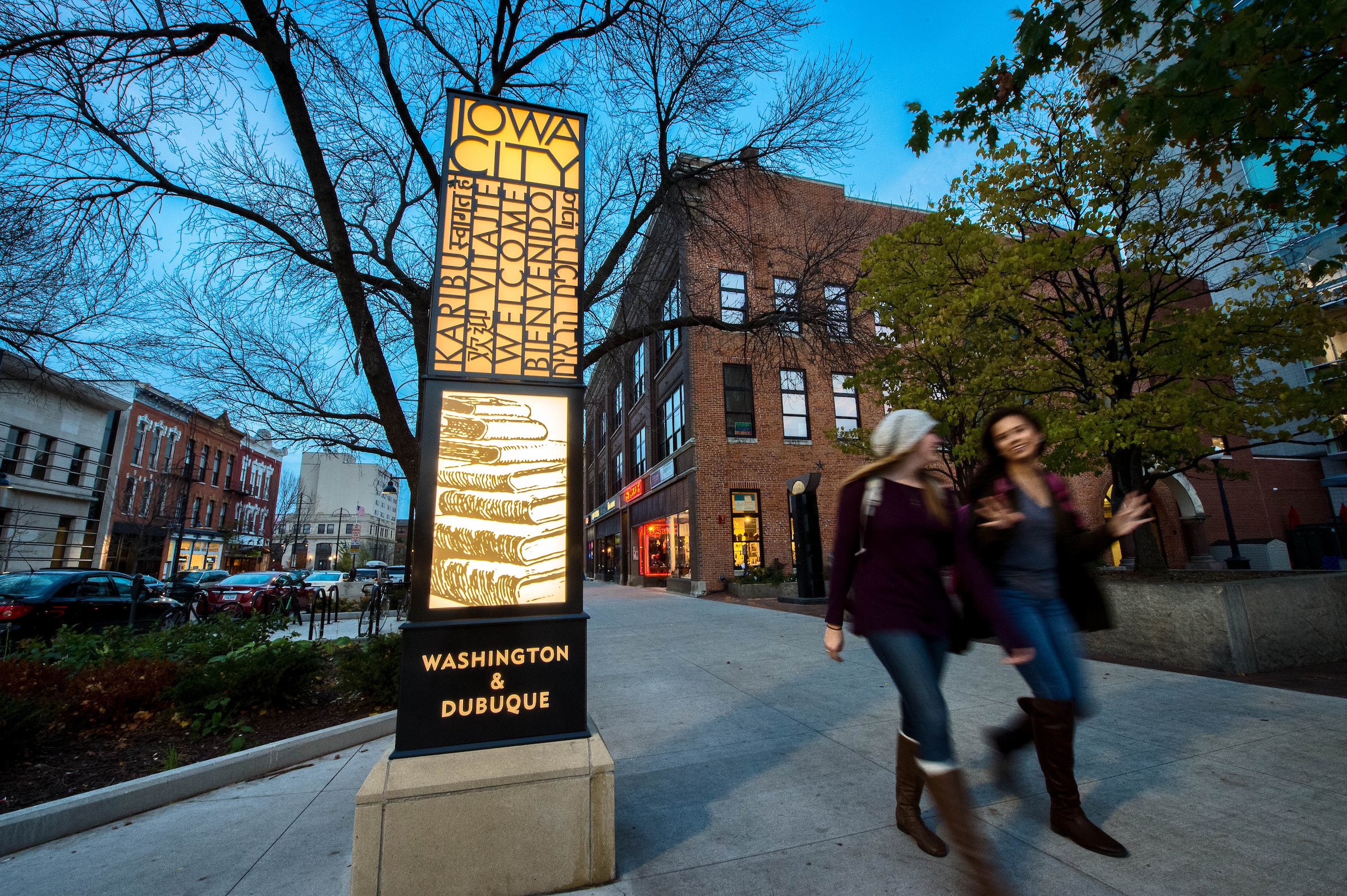
Although motorists on Interstate 80 can’t see much of Iowa City from the highway, a nearby rest stop with a two-meter-tall fountain pen hints at its esteem as a writing community. Many people are surprised to learn that this unassuming Midwest city—whose population of nearly 75,000 halves when the University of Iowa is on break—hosts one of the strongest writing cultures in the world and, for nearly a decade, was the only U.S. city to be internationally recognized for doing so.
“Writing is definitely very popular here,” says John Kenyon, executive director of the Iowa City UNESCO City of Literature. “Every coffee shop within a stone’s throw from this spot? I guarantee you right now there’s someone working on a piece of writing that will be published.”
What accounts for this concentration of writers and literature lovers? To answer, Kenyon likes to tell the story of how Iowa City became a UNESCO City of Literature. UNESCO’s City of Literature program was relatively new when Christopher Merrill, director of the UI’s International Writing Program, sent an email asking UNESCO officials if they thought Iowa City should apply for the designation. Within 15 minutes, Merrill received an answer: “We’ve been waiting for Iowa City to apply.”
Kenyon tells the story to underscore the fact that although Iowa City was designated a City of Literature by UNESCO in 2008, it was internationally known as a haven for reading and writing long before that.
In 1922, the UI became the first university in the U.S. to accept creative work as theses for advanced degrees, which led to the creation of the Iowa Writers’ Workshop in 1936, the first creative writing graduate program in the U.S. Since then, writers have come to Iowa City in relatively large numbers, and the number and diversity of writers and writing genres studied here has grown.
The UI now hosts two of the No. 1 ranked creative writing programs in the world: the Iowa Writers’ Workshop and the Nonfiction Writing Program. These programs are not alone in being highly regarded, however, and are joined by the International Writing Program, the Spanish Language Creative Writing Program, the Playwrights Workshop, and the MFA in literary translation. The university also is home to the University of Iowa Press, the Iowa Review, and the Center for the Book, a unique degree program training students in book arts practices and the history and culture of books.
Put simply, Kenyon says, “Iowa City would not be a city of literature without the University of Iowa.”
UI graduate students are not the only writers in town. The UI boasts an explosively popular undergraduate degree in creative writing, and numerous certificate courses through the Frank N. Magid Center for Undergraduate Writing. University students publish nine literary journals of different interests and forms.
Local and visiting writers of all ages who are not pursuing degrees also take writing courses through the Iowa Summer Writing Festival, the Iowa Writers’ House, the Iowa Young Writers’ Studio, and the Iowa Youth Writing Project.
“This is the only place in America where when you tell someone you’re a poet, they don’t respond in horror,” says Merrill. “They think, ‘Oh, that’s pretty great.’”
“The particular pleasure of life in Iowa City rests not so much in the fact that the girl beside you on the bus or behind you in line might well be pondering a great and turbulent tradition of thought and belief, and finding new language to explore it. This could be true anywhere. It is that here the privilege of hearing or seeing her thoughts as fiction or poetry, even seeing them emerge and develop, is widely shared.”
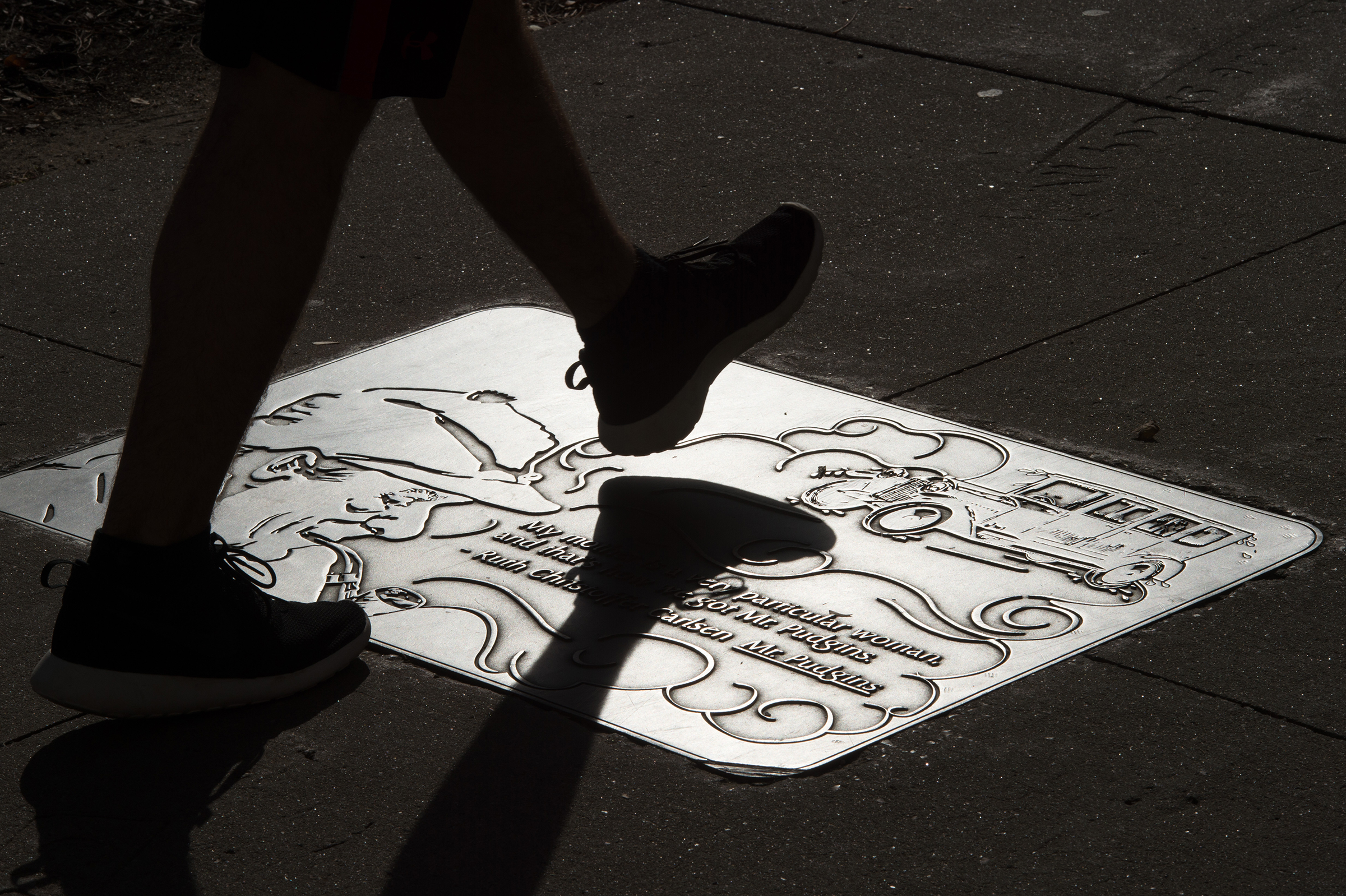
Writing is so much a part of the culture of Iowa City that quotes from famous authors with ties to Iowa City are engraved in the sidewalks like the Hollywood Walk of Fame. The bronze relief sidewalk panels surround the downtown area and feature the words of Flannery O’Connor, Carl Klaus, Rita Dove, and Tennessee Williams, among dozens of others.
Famous writers themselves also can be found walking the streets, drawn to Iowa City to teach at the university or give a reading of their work.
“You wander around and you continually are bumping into people who are your heroes, whose work you have sitting on the shelves of your own home,” says Inara Verzemnieks, a Pulitzer Prize finalist for her journalism and an assistant professor in the Nonfiction Writing Program. “Iowa City is an incredible creative community because there are so many readings. I remember one night counting, and there were four different literary events that I wanted to go to but could not clone myself to be able to go to.”
“People are aware of writing here in a way they wouldn’t be if they didn’t have the most prestigious, the first, and the oldest creative writing program in the country here. And they feel like they participate in that to some extent, because they can come to readings.”
Besides the Haunted Bookshop, Iowa City’s oldest secondhand bookstore, Iowa City is home to the famed Prairie Lights, a bookstore that regularly organizes readings for some of the country’s best and most famous writers, including Stephen King, Colson Whitehead, Reza Aslan, Marilynne Robinson, Michael Chabon, and recent National Book Award finalist Carmen Maria Machado.
Jan Weissmiller, who began working at Prairie Lights in 1979 and now is a co-owner, says that the writing culture of the city is well integrated into the broader life of the area.
“The town’s a lot bigger than it was when I came here, but there is still a focus on writing that seems to spread out to the rest of the population, Iowa City, and maybe even the corridor,” says Weissmiller. “People are aware of writing here in a way they wouldn’t be if they didn’t have the most prestigious, the first, and the oldest creative writing program in the country here. And they feel like they participate in that to some extent, because they can come to readings.”
Weissmiller says authors on book tours often bemoan the lack of attendees at their readings elsewhere, even in major literary hubs like New York City. She attended one such reading in New York by Emma Donoghue, the award-winning Irish author of The Room, which became an Oscar-winning film. The reading hall was set up to hold more than 100 audience members, but only six showed up.
“This is a story that you hear all the time from people on reading tours,” says Weissmiller, “and it does not happen at Prairie Lights.”
Weissmiller says readings in Iowa City are well attended and generally of a higher quality than elsewhere, partly because a healthy percentage of the audience is made up of fellow writers, some of whom personally know the author reading. As a result, the Q&A portion of the reading tends to be more intimate and learned.
In addition, it is common for an author reading at Prairie Lights to have once been a student in one of the university’s graduate programs.
“We have our alums come through often,” says Verzemnieks, “and so here students are having the chance to see a graduate from the program stand up and read from a work that usually began when they were a student. You can look around the room, quite literally, and watch people realize that that could be them—not just could be them, that will be them.”
Weissmiller agrees.
“The sort of energy that can be in Prairie Lights when we have someone who is reading from their first book here…it’s very raw and I think that’s the kind of experience that’s open to the entire community,” she says.
Iowa City has a unique literary culture in part because of the high participation of nonwriter residents in literary life. Writers permeate the city, Weissmiller says, and can be found everywhere—in the bars, restaurants, at parties—even on the bus.
In a 2013 article for the New York Times, Pulitzer Prize-winning author Marilynne Robinson, who taught at the Iowa Writers’ Workshop for 25 years, wrote, “The particular pleasure of life in Iowa City rests not so much in the fact that the girl beside you on the bus or behind you in line might well be pondering a great and turbulent tradition of thought and belief, and finding new language to explore it. This could be true anywhere. It is that here the privilege of hearing or seeing her thoughts as fiction or poetry, even seeing them emerge and develop, is widely shared.”
Kenyon notes that the number and quality of Iowa City’s festivals, events, and book clubs is surprising for the city’s size. The Iowa City Public Library hosts continuous literary programming, and the Iowa City Book Festival, held every fall, has grown from four days to a nine-day event-packed experience. Other festivals focused on writing and books include the Witching Hour and the Mission Creek Festival.
At these festivals, attendees can listen to emerging writers from across the country; hear Pakistani poetry from a visiting author; listen to Moby Dick read aloud on a street corner; get a comic book autographed by G. Willow Wilson, the writer behind the groundbreaking new Marvel Comic Ms. Marvel; and countless other opportunities.
Kenyon says that despite the vibrant literary life of Iowa City, some of the writers who come here do so to get away, to find a quiet corner where they can work on their writing without distractions, and that’s OK.
“Everyone excels because they do their own thing very, very well,” says Kenyon. “But they are part of this overall city of literature, and so when they’re ready—when their students are ready to come out and share their work—we’re there to help provide an audience.”

